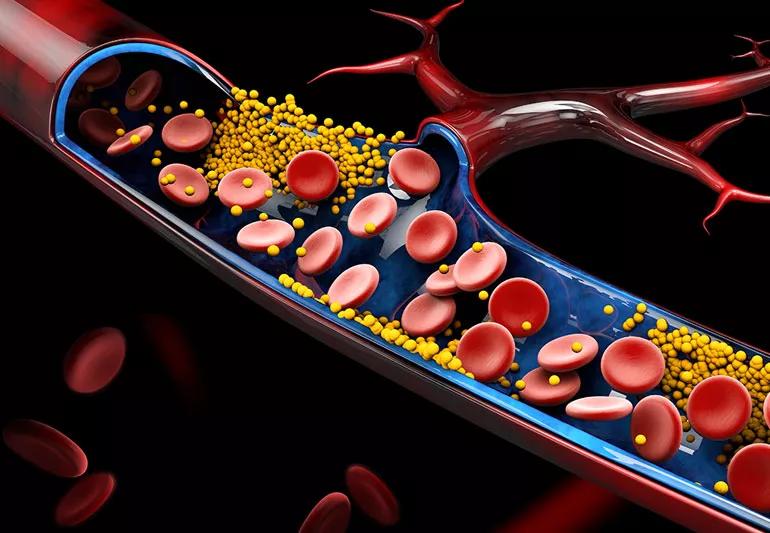The short answer from a cardiologist

Image content: This image is available to view online.
View image online (https://assets.clevelandclinic.org/transform/98cfc4be-5d39-44f3-9134-6b7710deaf6d/plaqueBloodVessel-1159729392_770x533_jpg)
plaque buildup in blood vessel statin
A: Yes. There have been several clinical studies — many of them done here at Cleveland Clinic — that show statins can reverse plaque buildup.
Advertisement
Cleveland Clinic is a non-profit academic medical center. Advertising on our site helps support our mission. We do not endorse non-Cleveland Clinic products or services. Policy
Two statins in particular, atorvastatin, which is sold under the brand name Lipitor, and rosuvastatin, which is sold under the brand name Crestor, are the strongest statins.
Clinical studies using ultrasound in the coronary arteries have shown that when you are on high doses of these medicines, even if you have plaque buildup already, you can stabilize the plaque on statin therapy.
If your LDL cholesterol is lowered below 70 mg/dL, you can even see a regression in the plaque by up to 24%. So having really a low LDL cholesterol level can help stabilize any plaque buildup you have, and prevent further plaque progression.
— Cardiologist Steven Nissen, MD
Advertisement

Sign up for our Health Essentials emails for expert guidance on nutrition, fitness, sleep, skin care and more.
Learn more about our editorial process.
Advertisement
LDL cholesterol and lipoprotein (a) cholesterol are more likely to stick to your arteries and lead to dangerous heart events
If you’re eating more than one egg per day, you might want to cut back
Your family tree may increase your risk of high cholesterol and heart disease
Understanding the difference between ‘lousy’ and ‘healthy’ cholesterol can help you keep your heart healthy
Spoiler alert: The potential benefits of drinking alcohol may be a tad overstated
An expert explains the link
The right lifestyle changes can make all the difference
Not all cholesterol-rich foods are bad for you
Type 2 diabetes isn’t inevitable with these dietary changes
Applying a hot or cold compress can help with pain
Pump up your iron intake with foods like tuna, tofu and turkey